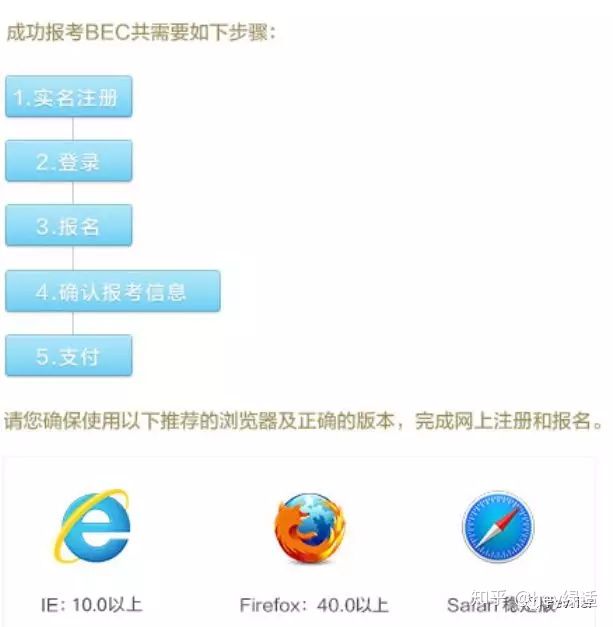托福听力实例分析选项讲解思路
托福听力中有许多题型都要一定的解题技巧和思路才能做好,否则会浪费考生很多的解题时间,比如配对表格题就是其中一例。今天小编给大家带来了托福听力实例分析选项讲解思路,希望能够帮助到大家,一起来学习吧。
托福听力实例分析选项讲解思路
托福听力配对题怎么做?
要想轻易拿到配对表格题的分数,并且不过多占用有限的答题时间,我们需要分析了解表格题的出题规律。配对表格题的特征比较容易把握,往往在文章中会出现两个人或物,对它们多方面进行比较与对比。在听文章时,要对对是否可能会出现表格题进行预判,掌握先机。
例:In the lecture, the professor discusses characteristics of folktales and fairy tales, indicate the characteristics of each type of the tale...Click in the correct boxes. This question is worth two points.
在这道题目中明显提到discusses characteristics of folktales and fairy tales,因此可以看出他们之间是相互对比,并且他们之间是有差异的。通过文章的开头部分我们就能得出本篇文章的主要内容就是童话和民谣的区别,因此对于这两种故事要在听的过程中着重他们的区别以及自身的特点。
选项1:Their appeal is now mainly to children
这句话在文章的最后体现出来,So why is it that fairy tales seem targeted toward children nowadays?用反义疑问句的形式表达了童话故事对于儿童来说很受欢迎。通过结尾原则和因果原则,在听的过程中应该记录到fairy tales和children.
选项2:The plot is the only stable element
对应文章中的讲到同一个民间故事因为时间、地方等也会变得不一样,故事Because of this, elements like place and time can no longer be tailored to suit a particular audience,暗示只有情节不变。因此属于Folk tales.
选项3:The tales are transmitted orally
对应文章中So, what's a folktale? How would you characterize them? Jeff?,They were passed down orally within cultures from generation to generation,通过教授和学生的一问一答就可以看出folktale是通过passed down orally。在听的过程中,问答原则也可以为考生提醒这里是重点所在。
选项4:There is one accepted version
对应文中But with a fairy tale, it's always there in a book, waiting to be discovered, again and again. 因此可以看出童话故事只在书本上这一种被接收的方式。通过转折原则记录关键信息,a fairy tale、 always in a book即可得出答案。
选项5:Characters are well developed
通过上面几个选项的分析,我们知道民谣是通过口口相传,而童话故事只出现在书本上,很显然只有童话故事的角色塑造要比民谣塑造的好。还可以通过找出对应的原文But in fairy tales, people no longer have to remember plots. So more energy can be put into other elements of the story like character and setting. character and setting被很好的塑造因此本选项属于童话故事。
选项6:The language is relatively formal
本选项和第五个选项的分析相同,因为书上的童话故事的语言是通过加工和认真修改的,而民谣通过人与人之间的交流相传,语言比较随便,因此语言比较正式的是童话故事。
托福听力:段子练习之地理冒险
Good morning, class. Before we begin today, I would like to address an issue that one of you reminded me of after the last lecture. As you may recall, last time I mentioned that Robert E. Peary was the first person to reach the North Pole. What I neglected to mention was the controversy around Peary’s pioneering accomplishment. In 1910, a committee of the national geographical society examined Commodore Peary’s claim to have reached the North Pole on April 6th’ 1909 and found no reason to doubt him. This judgment was actually confirmed by a committee of the US congress in 1911. Nevertheless, Peary’s claim was surrounded by controversy. Tins was largely due to the competing claim of Doctor Frederic Cook who told the world he had reached the Pole a four-year earlier. Over the decades Peary was given the benefit of the doubt, but critics persisted in raising questions about his navigation and the distances he claimed to have covered. So the Navigation Foundation spent an additional 12 months of exhaustive examination of documents relating to Peary’s polar expedition. The documents supposed Peary’s claims about the distances he covered. After also conducting an extensive computer analysis of photos taken by Peary at the pole, they concluded that Pierre and his companions did in fact reach the near vicinity of the North Pole on April 6th. 1909. OK, today we’re going to talk about exploration of the opposite end of the world, I assume you all read chapter 3 in our text and are now familiar with the names: Emerson and Scott.
托福听力:必备连词整理
一. And 并列关系 (and)
in addition // and // similarly // likewise // as well as // besides // furthermore // also // moreover // too// not only ... but // even // besides this/that
二. Sequence 顺序 (then)
出现的时候表示列举
first// initially // second etc. // to begin with // then // next // earlier/later // following this/that // afterwards
三 Consequence 结果 (so)
前面是后面的结果 // 也就是这些词后面就开始给出结论了。
as a result// thus // so // therefore // consequently // it follows that // thereby // eventually // tn that case // admittedly
四. Contrast转折 (but )
表对前面论述的转折 // 一般后面才是作者观点
however// on the other hand // despite // in spite of //
though // although // but // on the contrary
otherwise// yet // instead of // rather // whereas // nonetheless // in contrast
五. Certainty 确定 (of course)
强烈的确定 // 后面是作者的坚定论点
obviously// certainly // plainly // of course // undoubtedly
六. Condition 条件/ 因为 (if )
后面跟随着某种情况发生的前提或者是条件。
if // unless // whether // provided that // // Given that // for // so that // whether // depending on
七. Time 时间 (when )
before // since // as // until // meanwhile // at the moment // when // whenever // as soon as // just as
八. Summary 总结 (in a word)
作者的最后总结
in conclusion // in summary // lastly // finally // to sum up // to conclude // to recapitulate 重述 // in short // in a word
九. Example举例 (for example)
for example // for instance // just as // in particular // such as // namely 也就是
十.Reason原因 ( because)
since // as // so // because (of) // due to // owing to // the reason why // in other words // leads to // cause
托福听力相关文章:
★ 2020托福听力5大出题规律是什么
★ 英语文摘
★ 大学英语学习计划书
★ 短期内提升托福听说读写的方法
★ 北京高考英语听力将一年两考 教育部正审批方案
★ 托福听力常见题型解题思路讲解之主旨题和细节题
★ 托福听力7大类关键信号词全面讲解
★ 托福听力备考阶段高效提升必做4件事
★ 改善托福听力表现和得分要从这5个方面入手
★ 托福听力做笔记2个实用小技巧分享
上一篇:托福听力历史类话题如何听重点
下一篇:托福听力材料抓重点做题不能空




